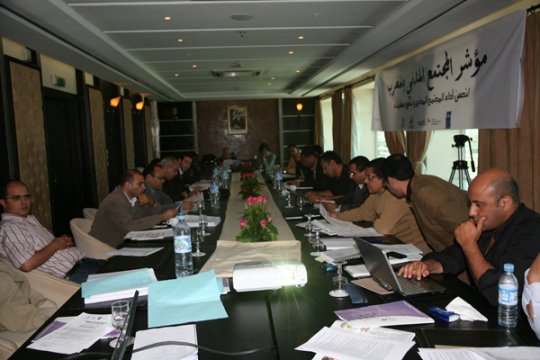Morocco: Social Watch launches national debate on sustainable development
Published on Fri, 2011-05-06 16:29
Source: “Le Matin”, Moroccan newspaper The main francophone Moroccan newspaper, Le Matin, expressed its support to the consultation process launched by the Associative Space, focal group of Social Watch in that country, towards the United Nations Conference on Sustainable Development (“Río + 20”), to be held in Rio de Janeiro in June 2012, the same as the long remembered 1992 Earth Summit. Furthermore, the process reflects the current approach of Social Watch to sustainable development issues, on which its next annual report will be focused. The following is the article published in the Moroccan newspaper Le Matin: Civil society gives notice of the UN Conference Civil society has been invited to participate in the preparation of the United Nations Conference on sustainable development to be held next June in Rio. Twenty years after the 1992 Rio Summit, the United Nations Conference on Sustainable Development, better known as “Río + 20”, will take place on June 4 in Rio de Janeiro, Brazil. This international event is held every 10 years to assess the commitments undertaken by States in terms of green economy and sustainable development. The last one, known as Earth Summit, took place in Johannesburg in 2002. Other international meetings were held in Kyoto, Cancun and Copenhagen. Nevertheless, these meetings, which appear to be repeating themselves, no longer fulfil the expectations of civil society. According to it, the economic, financial, climate and food crises call on States to rethink their public policies taking into account development indicators, among them the Millennium Development Goals by 2015. In this sense, the Associative Space, national platform of civil society organizations, has been invited to make its contribution to the Social Watch Report. Social Watch, an international network of civil society organizations particularly engaged in the struggle against poverty and racism, intends then to present its report on the issue of sustainable development in Río + 20. The national report will reflect the opinion of civil society about the progress made in terms of environment and sustainable development at country level. “The contribution will deal with the interaction among society, economy and the environment. We will invite young people to know their opinion”, highlighted economist Azedinne Akesbi. Participants decided to give the problem of water in Morocco a central place in the report, since some regions are starting to suffer the hydric tension. The whole Kingdom is threatened by the lack of water by 2020. In view of this situation, it is essential to impose a rational exploitation of underground water. In El Hajeb, 340 pits were registered. In that same territory, only one person owns 24. The privatization of water management also poses problems for the popular classes when it comes to paying water bills. “Water the same as air should not be privatized”, said Mohammed Anouar El Hazziti, officer of the Ministry of Housing and Urban Planning. In spite of having the best intentions, civil society cannot exert power over decision-making so long as it lacks action means. “Putting good governance into practice implies to give associations the means to supervise and assess public policies”, stressed El Hassan Saouty, president of the Moroccan Association of engineers in atomic engineering. At the 2002 Earth Summit in Johannesburg, Morocco undertook the commitment to present its National Strategy on Sustainable Development before 2005. However, a change has taken place since that date. “About the strategy, it is necessary to refer to the report regarding the implementation of the green charter that outlines the process for elaborating the environment protection and sustainable development strategy”, stated a close source of this report to the State Secretary for Water and Environment. The Report on the Implementation of the National Charter for the Environment and Sustainable Development launched last February during the seventh session of the National Environment Council indicates that the “green” charter will be implemented through a sustainable environment protection system, presented by means of specific and operative proposals according to three deadlines: 2015, 2020 and 2030. Social Watch Morocco The roots of Social Watch in Morocco date back to 1996 when the Associative Space (AS), a group of local civil society organizations and human rights watchers, was created as a platform to contribute to the country’s democratic development processes. The AS quickly joined forces with the Arab NGO Network for Development (ANND), located in Lebanon, to establish links with other regional networks and promote the economic, social and cultural rights in the region. For its part, ANND, which joined the Social Watch network from the beginning, following the 2005 World Summit for Social Development encouraged the AS to lead the creation of a national coalition of the international network in Morocco. In 2001, the AS and its affiliate organizations started to be part of the Social Watch global network, contributing for the first time with a national report to be included in the world report of that same year. Since then, the Moroccan coalition continued to work and made its contribution to the national and international debates on gender rigths and poverty reduction. |
SUSCRIBE TO OUR NEWSLETTER



